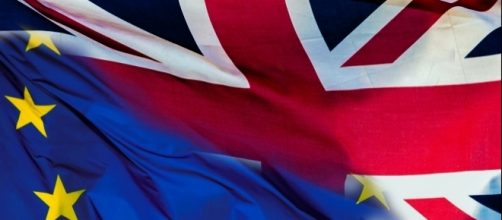I will always remember the morning after the Brexit vote, I awoke to absolute shock, a shock no doubt felt by everyone across the country. For some, it was a feeling of despair and the inescapable thought we were heading back in time. For others, relief and jubilation that we were free from something flawed and unnecessary.
Only time will tell which side of that argument is correct but for me what has been most alarming about the entire thing is how we have responded as people. I have seen family relationships break down and I have watched as members of a civilized society have condemned and vilified others with hatred, over what is simply a difference in opinion.
But it's not just Brexit where this occurs, it's our entire political landscape, and I believe that needs to change.
Presumptions of the other side
I would say we have come to a time where we have boxed up and automatically connected one thought with another. If a Labour supporter tells a Conservative supporter that is how they vote, then they are immediately viewed as being a 'lefty snowflake' and someone who must obviously want to ruin the economy. In reality, they may just believe that the poor have been unfairly treated.
Similarly, if a Conservative supporter tells a Labour supporter that is how they vote, they are immediately viewed as someone who hates the poor, hates the vulnerable and must have no compassion for others.
In reality, they could just be, for example, a small business owner who benefits from Tory policies.
And the same thing has happened with Brexit. If you voted to leave you are uneducated, racist and hate immigrants and if you voted to remain then you’re an unpatriotic globalist.
Of course, that is so far from the truth. There is no right and wrong in politics only different viewpoints, and the issues are so complex, as are individual human lives, that everyone will have reasons for the side they stand on - it’s time we start listening to those reasons.
Changing opinions
The nature of politics dictates that the more people on your side, the better. If you think a certain way, then the best method for advancing those beliefs is to create that opinion in others.
In all other walks of life this seems to be something we are more than capable of doing, so why not in politics?
If you like a particular band which your friend doesn't, what would you do to change his mind? You would tell them all the reasons why they are great and why you like them. Explain aspects of the band they may not have known or previously appreciated, in an attempt to change their listening experience.
Yet when it comes to political opinion, this is something we are unable to do.
We can’t tell each other what we think and have a discussion and Debate about why we think those things. No-one saw the Brexit vote coming because so many people were silent, scared to say how they really feel for fear of how others would respond.
If you want to change people's views, you must create an atmosphere where they can share those views. Until we stop shouting at each other from either side, I believe our ability to progress as a nation will be dampened.
Is electoral reform the solution?
In the last election, assuming perfect spread of these additional votes, the Conservatives were only 287 away from a majority, and the Labour Party were only 2227 votes away from the same accomplishment. Looking at those numbers you have to question how fair a system that is in a country of over 60 million.
In our current system, not only can only two parties realistically win but if you live in a constituency where one of them dominates, your vote is essentially null and void.
I don't believe that Jeremy Corbyn's policies can work in practice and at the same time, I think the Conservatives have squeezed too much those economically at the bottom of society, and Theresa May is an ineffective leader. So, what do I do? Who do I vote for? And where is my voice?
The argument for this FPTP system is that it always delivers a clear winner that can go on and govern alone, but the last two elections have proved this isn't the case.
I believe that this almost two-party system has divided us and I believe that more noise needs to be made about how that can change. If there were another general election tomorrow, I wouldn't know who to vote for, and I don't think I would feel very well represented in any outcome - surely, I am not the only one in that position?


